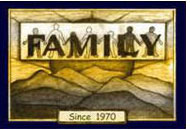Choosing the best care for your child can be a difficult task. Research the different types of child care (family, group family, center or school age) and decide which type best fits the needs of your child and family. You may want to check out more than one type of care. Then decide where the care should be located (closer to home or work?).
Six Quality Indicators to think about when Choosing a child care program
Group Size: Think about your child’s personality.
- Does your child do well in a larger group setting or a smaller group setting?
- Is your child more comfortable with younger children, older children or mixed age groups?
- Review the types of care section of this website so that you are familiar with the different types of care that may be available.
- Choose the type of setting and group size that will be optimum for what fits your child’s personality.
Ratios: This refers to the number of staff members available for any group of children.
- Some children thrive in one on one settings, other do better in a group of their peers with less adult direction.
- All types of child care programs must provide direct visual supervision of the children in their care, but some are more staff directed, some more child directed programs.
- Refer to the types of care and ratios portion of this website so that you are familiar with what to expect in the different types of programs.
- Be sure to choose a program that will be an optimum fit for your child’s personality.
Caregiver Education: Each regulated child care program requires that caregivers have a certain amount of education or experience in order to receive their license or registration.
- This educational requirement continues on an on-going basis.
- Each child care program to have at least one staff member who is currently licensed and registered in CPR and First Aid on site at all times.
- Training in program development, child abuse and maltreatment identification and prevention, program development, nutrition and health, safety and security, child development, shaken baby syndrome prevention, and regulatory statutes is required.
Accreditation:
Some child care programs have met national standards of quality that are more rigorous than licensing/registration rules. These programs/providers take extra training and pass tests to receive national recognition.
Caregiver Turnover: It is important for your child to build a relationship with their child care provider.
Continuity of care for your child(ren) to develop a trusting relationship with a caregiver is very important. In some types of child care settings, children may move from one room to another depending on their age and their care givers may go with them or not. How long a program is in business and staff remain with a program is pertinent information for you to know so that you can determine continuity.
Family Involvement: Parents must have access to their child in the day care program.
A system is in place to share information regarding the child’s day. Communication between parent and provider is essential to a quality care relationship.
Health and Safety: Choosing quality child care that focuses on health and safety can ease a parent’s anxiety.
By following the OCFS regulations:
- Parents can be assured that adults and children wash their hands.
- Diaper changing surfaces are cleaned and disinfected after each use.
- First aid kits are readily available.
- The outdoor play area is safe and utilized daily.
- There is a plan in place for responding to emergencies.
- All background checks have been done on staff and household members over 18 years of age.
If you have any questions or concerns regarding the care your child is receiving or if you need additional information about child care, please contact our office at (845) 331-7080, e-mail cccouncil@familyofwoodstockinc.org (Ulster) or (518) 822-1944, email ccccg@familyofwoodstockinc.org (Columbia/ Greene).
